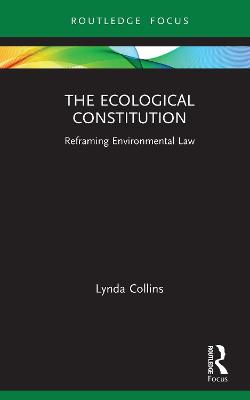Routledge Focus on Environment and Sustainability
1 total work
The Ecological Constitution integrates the insights of environmental constitutionalism and ecological law in a concise, engaging and accessible manner.
This book sets out the necessary components of any constitution that could be considered "ecological" in nature. In particular, it argues that an ecological constitution is one that codifies the following key principles, at a minimum: the principle of sustainability; intergenerational equity and the public trust doctrine; environmental human rights; rights of nature; the precautionary principle and non-regression; and rights and obligations relating to a healthy climate. In the context of the global environmental crisis that characterises the current Anthropocene era, these principles are important tools for changing consciousness and driving pragmatic policy reforms around the world. Re-imagining constitutions along these lines could play a vital role in the collective project of building a sustainable future for humans, animals, ecosystems and the biosphere we all share.
This book will be of great interest to students and scholars of environmental law, ecological law, environmental constitutionalism, sustainability and rights of nature.
